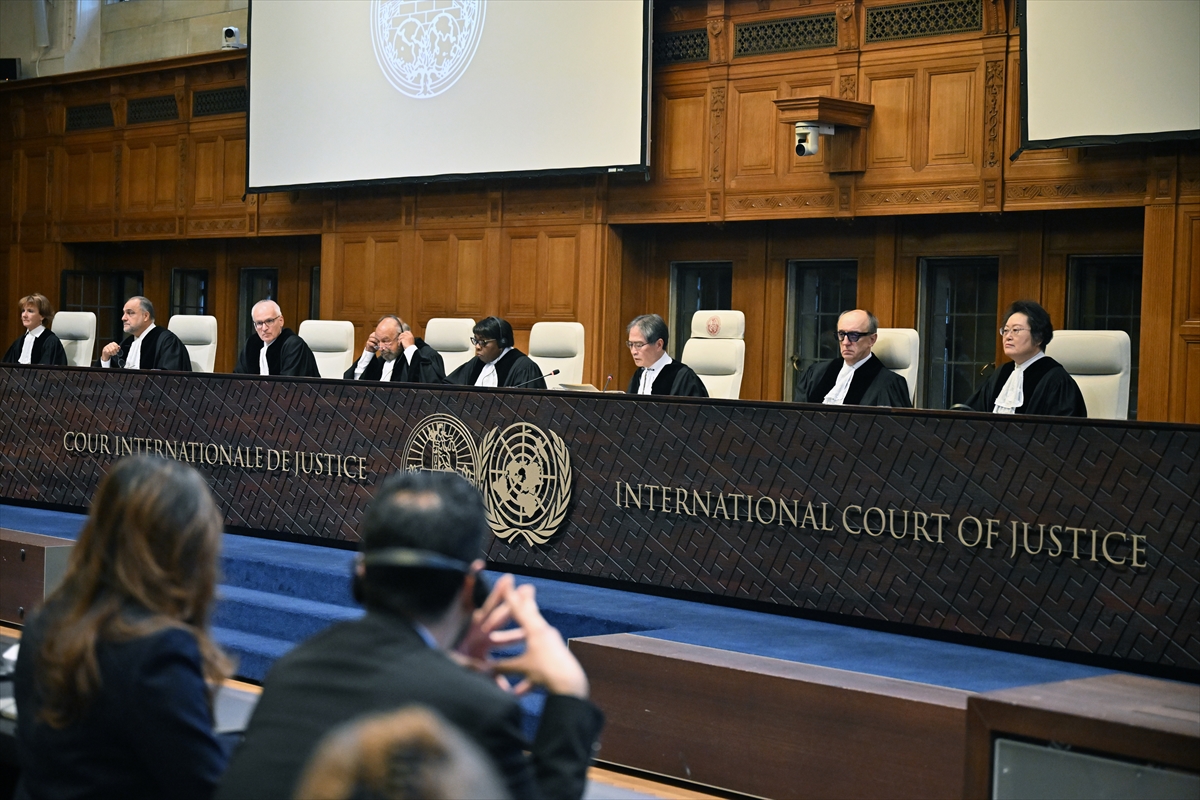
By Elham Asaad Buaras
London, (The Muslim News): A senior UN official has delivered a stark assessment of the humanitarian catastrophe unfolding in the Gaza Strip. He described a collapse in maternal healthcare, widespread starvation, and devastation resembling a dystopian film.
At a Wednesday news conference, Andrew Saberton, Deputy Executive Director of the UN Population Fund (UNFPA), detailed the dire situation facing women and girls in Gaza based on his first-hand account.
“In Gaza, I was not fully prepared for what I saw. One cannot be fully prepared. The devastation looked like a set from a dystopian film,” Saberton stated. “There is no other way to put it: Gaza has been flattened. There are miles of rubble and dust. Few buildings remain intact. I cannot unsee what I have seen.”
He emphasised the profound personal toll on both the population and the aid workers struggling to respond. “Every single UNFPA staff member in the Gaza office has experienced the death or multiple deaths of relatives, and almost all have had their homes or their families’ homes destroyed. And yet they have turned up every day for two years, no escape, no time off.”
“Many women in Gaza have lost everything,” he explained, noting they are often unable to “access the most basic personal hygiene supplies when they are menstruating.”
WORLD COURT MANDATES UNCONDITIONAL AID ACCESS
The poignant testimony coincided with a significant legal ruling from the International Court of Justice (ICJ). The world court found that Israel, as the occupying power, is obliged under the Geneva Convention to “respect, protect, and fulfill” the rights of Palestinians and must permit and facilitate humanitarian relief operations to ensure sufficient aid reaches the strip.
In a detailed advisory opinion, the court underscored that Israel carries an “unconditional duty” to ensure the population’s basic needs are met. It determined that the supply of essentials to Gaza has been “inadequate” and that Israel must therefore allow and assist relief schemes provided by impartial groups, including the UN and the International Committee of the Red Cross.
The ruling rejected Israel’s claims that UNRWA staff were broadly affiliated with armed groups, stating that Israel “has not substantiated its allegations.” Furthermore, the court found no evidence of discrimination in UNRWA’s aid distribution.
“The occupying power may never invoke reasons of security to justify the general suspension of all humanitarian activities in occupied territory,” the court asserted, reiterating that Israel’s obligation is “unconditional.” It also reiterated that starvation of civilians cannot be used as a method of warfare.
ISRAEL REJECTS RULING AS CASUALTY FIGURES MOUNT
Israel’s Foreign Ministry categorically rejected the opinion, calling it “entirely predictable.” Spokesperson Oren Marmorstein claimed, without providing substantiated public evidence, that the court “should have called out the terrorist activity that UNRWA has been involved in.”
The ICJ’s ruling comes as the human cost of the conflict continues to escalate. According to health authorities in Gaza, Israel’s military offensive has now killed at least 68,234 people and wounded 170,373 since October 2023.
In a grim development, Gaza’s Health Ministry received the remains of 30 more Palestinians transferred by Israel on Wednesday, with several bodies showing “clear signs of abuse, including beatings, bound hands, and blindfolded eyes.” The new handovers bring the total number of bodies returned since October 14 to 195, of whom only 57 have been formally identified. The destruction of Gaza’s laboratories and the long-standing blockade have made forensic testing impossible, forcing families to rely on physical marks or clothing for identification.
Meanwhile, the World Health Organization reported that while 41 critical patients and their families were recently evacuated, a further 15,000 requiring treatments abroad still await permission from Israeli authorities.
[Photo: International Court of Justice (ICJ) gathers to issue an advisory opinion assessing the legal consequences of Israeli restrictions on United Nations (UN) agencies in the Hague, Netherlands on October 22, 2025. Photojournalist: Dursun Aydemir/AA]